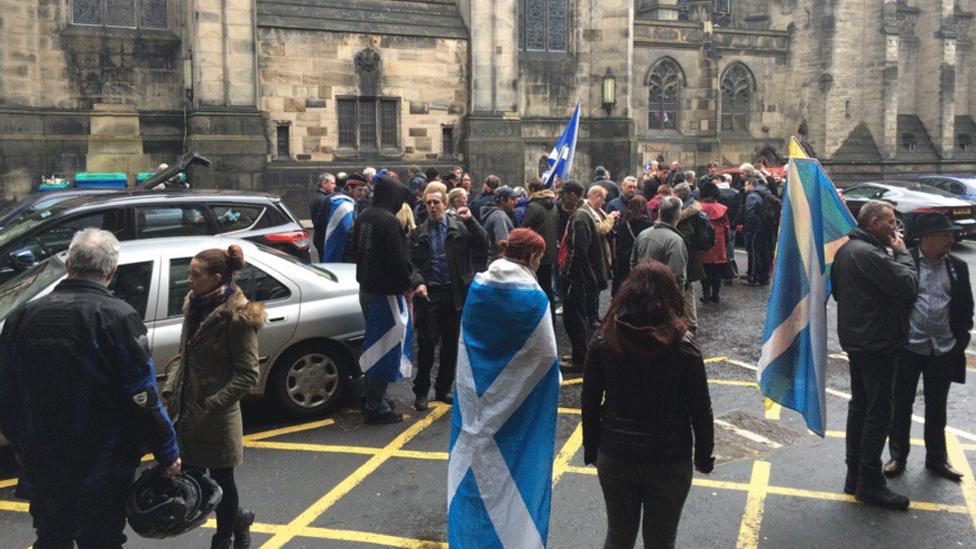IndyCamp group bid to cite Queen as witness in eviction case
- Published
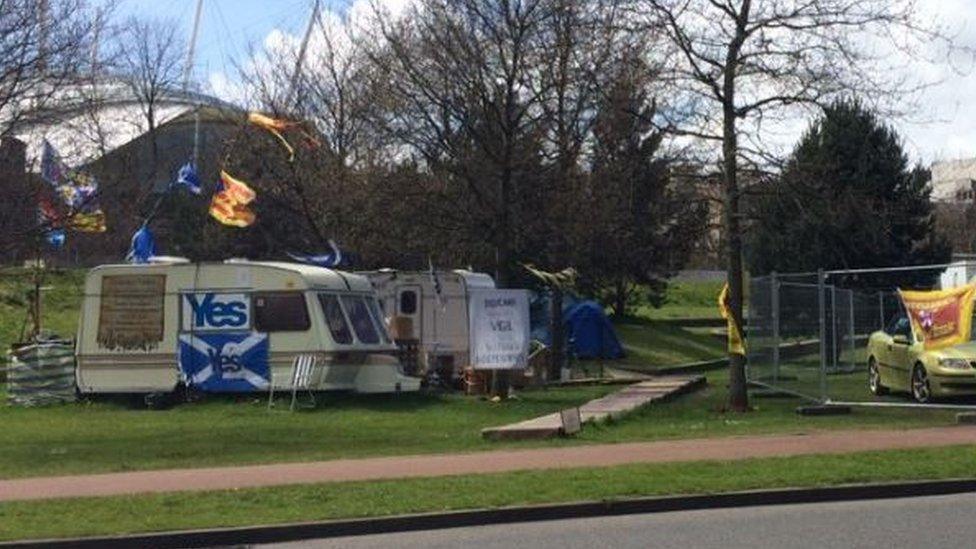
The independence camp was set up at Holyrood in November 2015
Independence campaigners have attempted to cite the Queen as a witness in their fight against eviction from Holyrood.
The IndyCamp group described their vigil outside the Scottish Parliament as a "spiritual mission" inspired by "the second coming of Jesus Christ".
The parliament has taken them to the Court of Session in a bid to have them removed from the campus.
Judge Lord Turnbull has fixed a full hearing on the proportionality of evicting the group for 29 June.
The latest hearing was intended to let the group provide an update on their attempts to find a lawyer to represent them in court.
In unusual scenes at the Court of Session, the hearing eventually saw the Queen cited as a witness, the rebirth of Jesus proclaimed and Lord Turnbull himself accused of "blasphemy".
'Spiritual mission'
Camper Richard McFarlane told Lord Turnbull that he had contacted 144 lawyers and firms, who all told him they were "too busy".
He explained that about half of the people taking part in the camp, which was set up in November with the goal of staying in place until Scotland is independent, were on a "spiritual mission".
He said Jesus Christ had returned to earth and was "the rightful monarch" of Scotland, calling for the Stone of Destiny to brought out for his "coronation".
The group appealed for extra time to try to find a lawyer, but this was rejected by Lord Turnbull after parliament representative Gerry Moynihan QC pointed out that public money was being spent on the case.
He said there was "no realistic prospect" of the group securing legal representation in the short term, and said the time had come for the case to move forward.
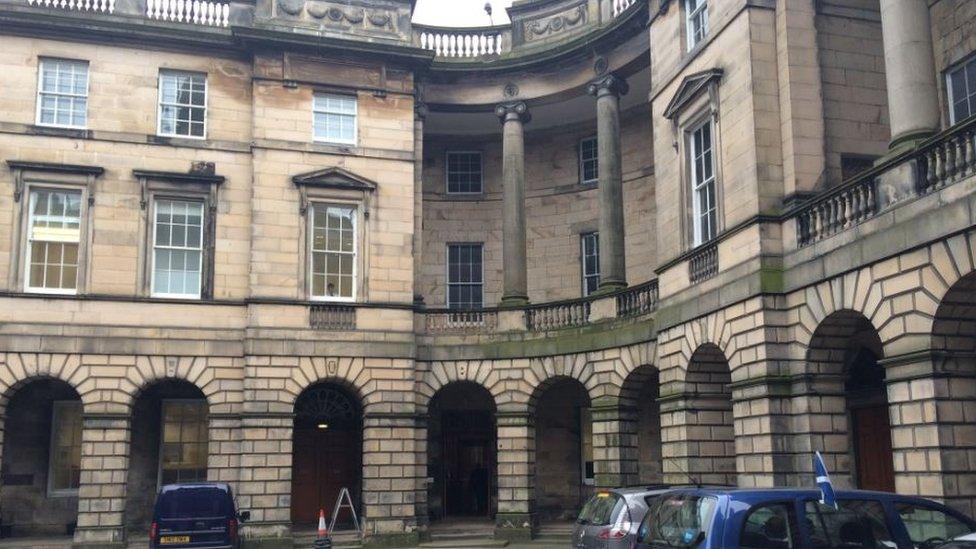
The campers have been taken to the Court of Session by the Scottish Parliamentary Corporate Body
Having rejected earlier arguments by the campers based on the Declaration of Arbroath and the Act of Union, Lord Turnbull now wants to hear arguments from both sides about whether eviction would be "proportionate", specifically in light of the campers' human rights.
When he asked if the group would like to put forward any witnesses for this hearing, Mr McFarlane said he would like to call Queen Elizabeth, among other witnesses.
Mr Moynihan pointed out that witnesses would not be compelled to appear, meaning "Her Majesty would need to volunteer"; nevertheless, he formally opposed calling the monarch as a witness.
'Ridiculed belief'
Another respondent, Arthur Gemmill, then accused Lord Turnbull of "blasphemy", saying he had "ridiculed" his belief in God.
When asked to substantiate this claim, having been warned about the potential of committing contempt of court, Mr Gemmill said he could not find the passage in the written judgement, but insisted Lord Turnbull had insulted him at an earlier hearing.
He said that the judge had "dismissed my comment that only God could make laws for men", by saying "is that right" in a "derogatory" tone.
Lord Turnbull said he would not pursue contempt of court proceedings against Mr Gemmill, although he noted that such allegations could have "serious repercussions".
He said he had been very patient with the campers, despite many of their submissions being "unrecognisable in law", and noted that the way they had referred to the Queen "undermined" his belief that they were "genuinely and responsibly" focused on the case.
A further hearing will be held on 29 and 30 June, where each side will put forward arguments about whether eviction is a proportionate response to the presence of the camp. Lord Turnbull warned the campers that only arguments based on human rights would be heard.
The camp was set up on the parliamentary estate in November 2015, with the original campers citing the Democracy for Scotland vigil that campaigned for devolution as an inspiration.
The parliament's corporate body moved to have the group removed, arguing that they are taking up space without permission and could be compromising the political neutrality of the campus.
- Published27 May 2016
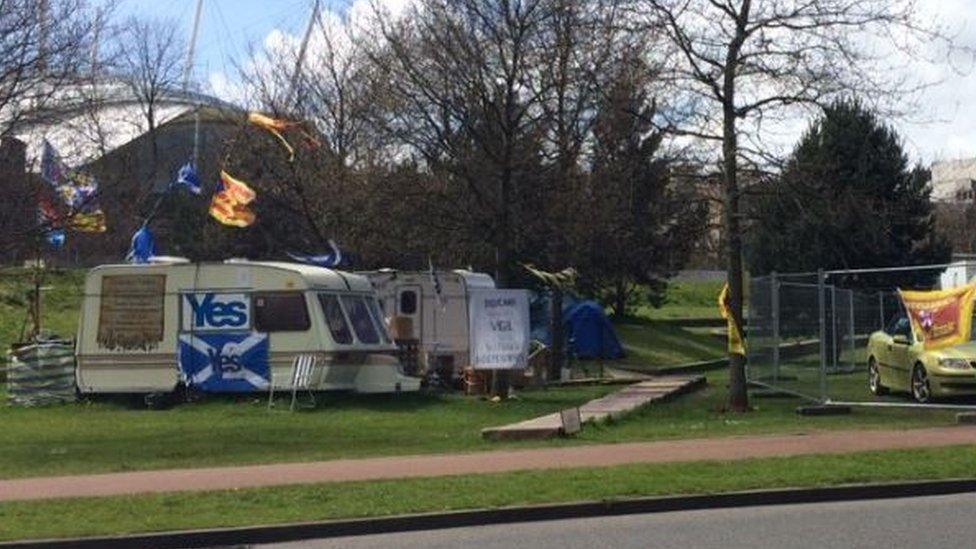
- Published5 May 2016
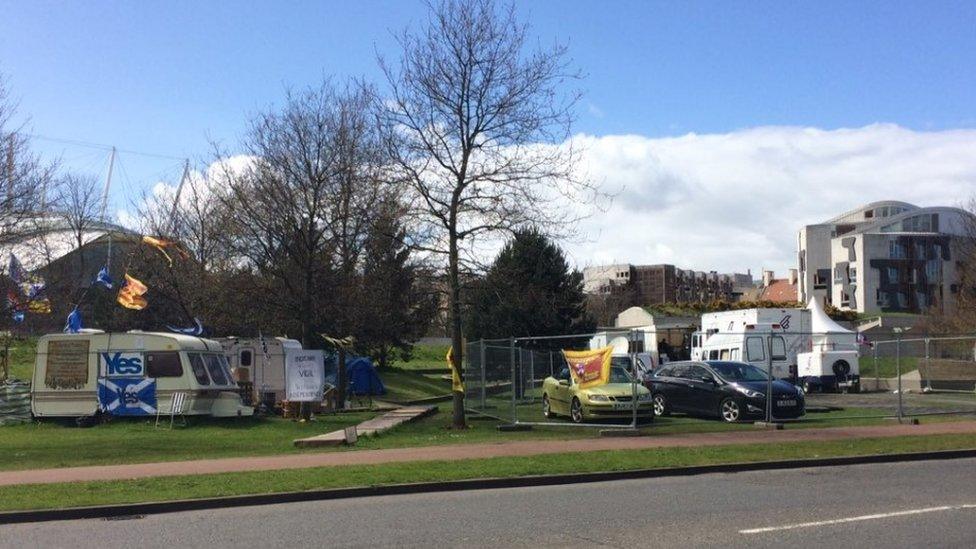
- Published24 March 2016
